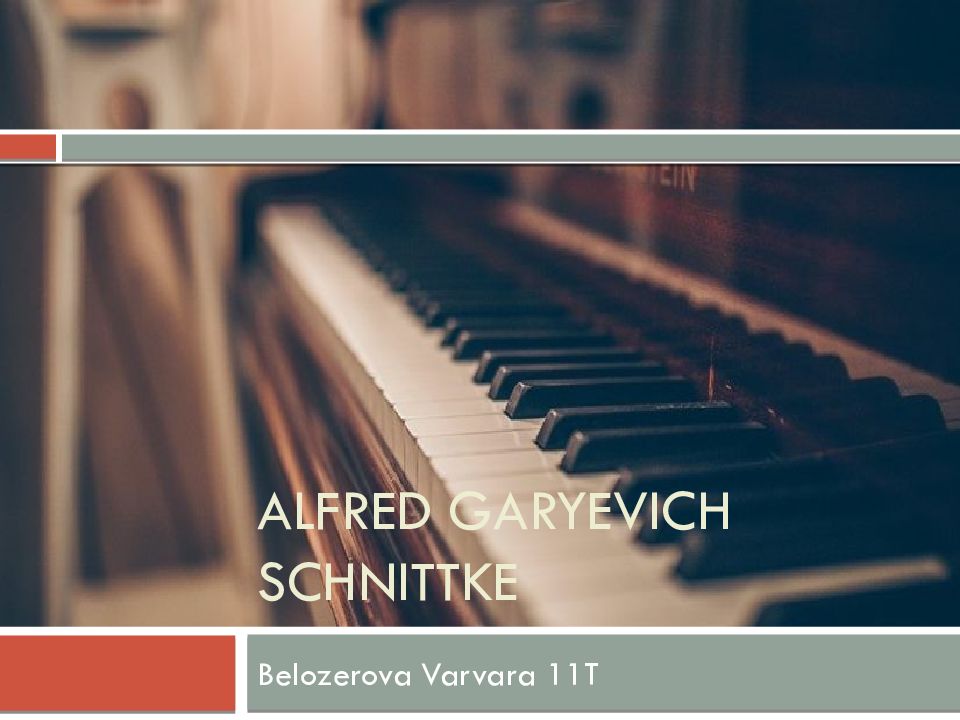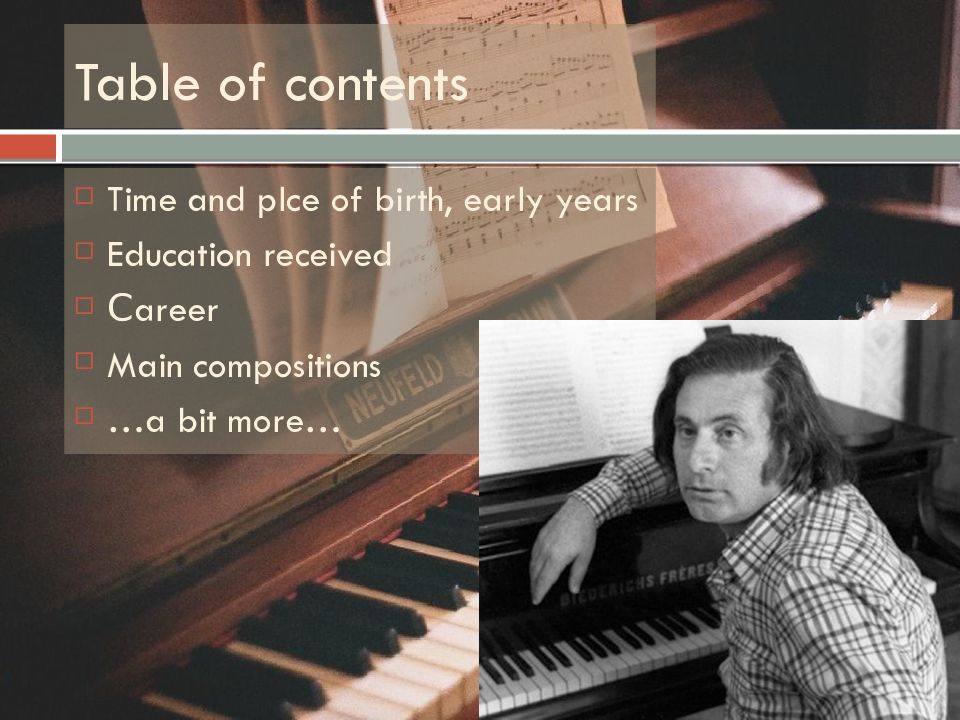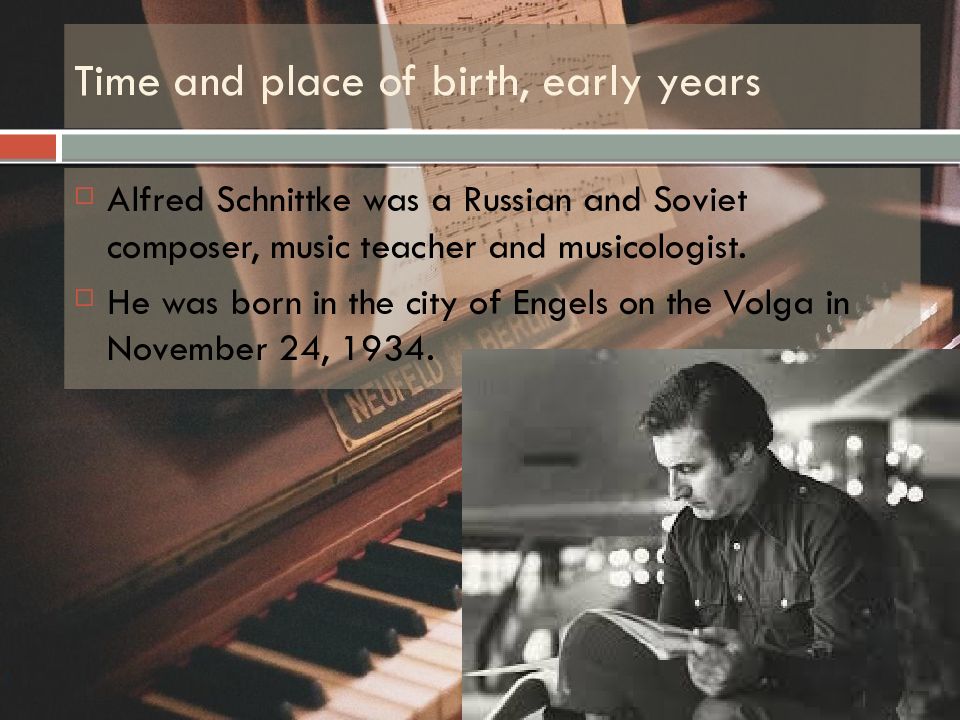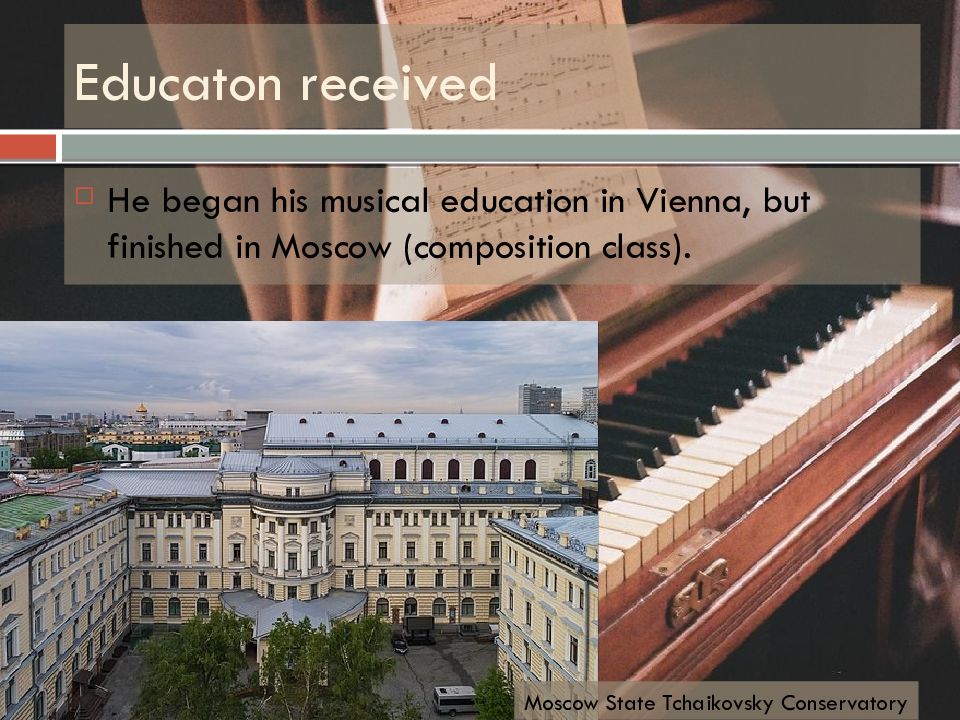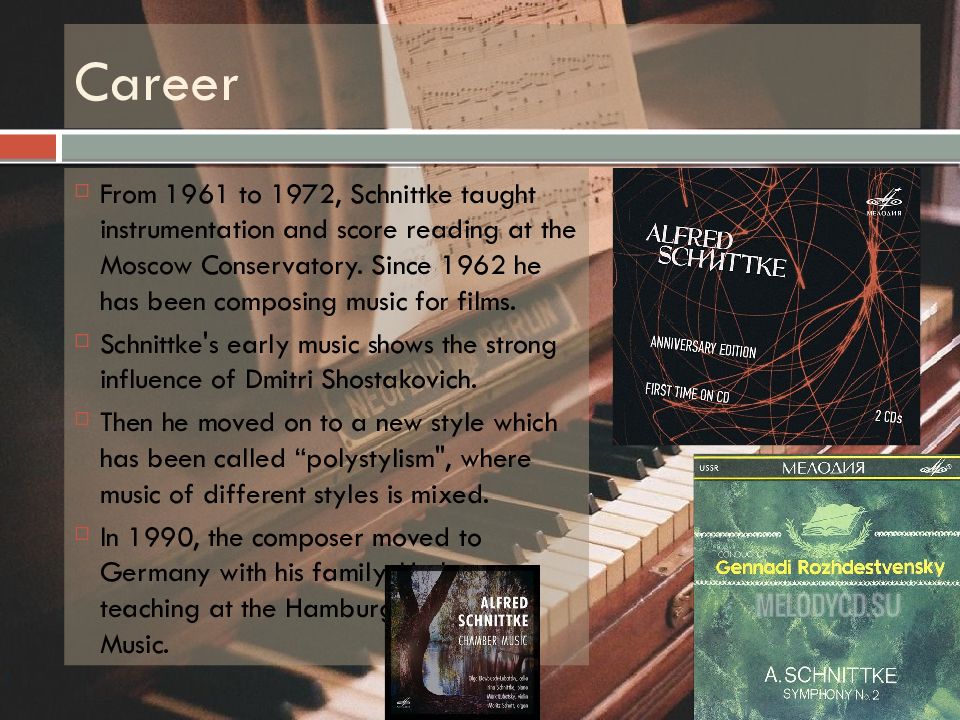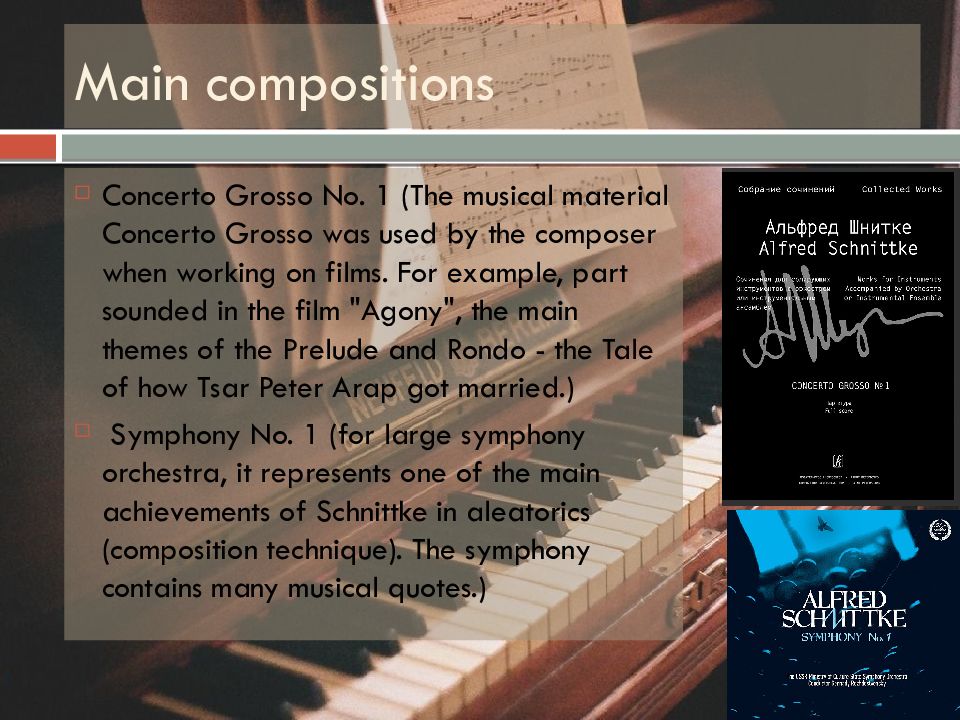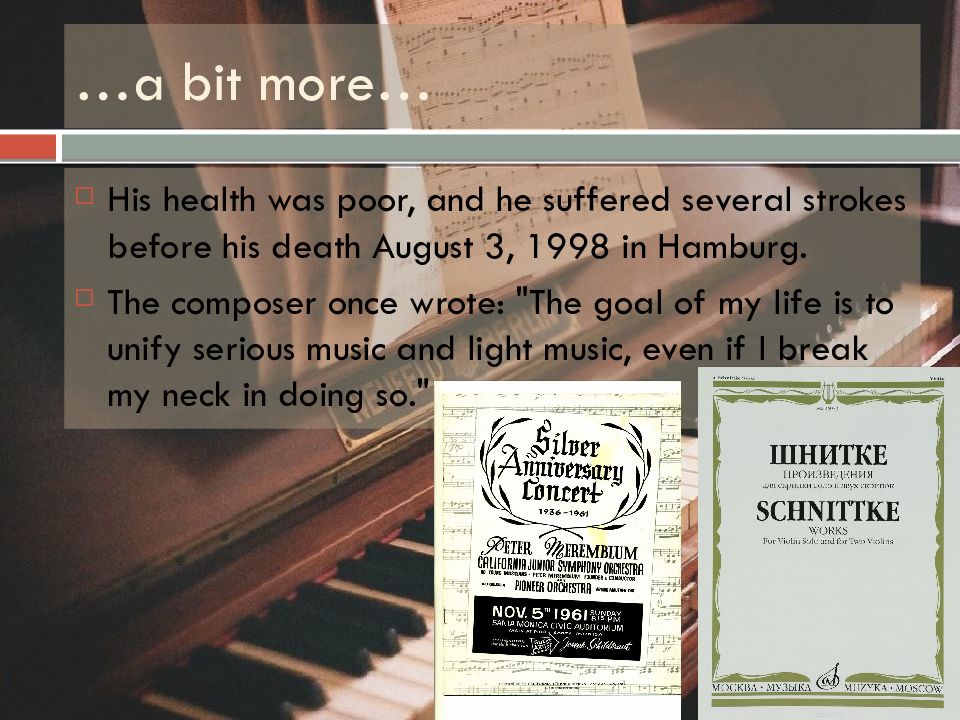Слайд 2: T able of contents
Time and plce of birth, early years Education received Сareer Main compositions … a bit more …
Слайд 3: Time and place of birth, early years
Alfred Schnittke was a Russian and Soviet composer, music teacher and musicologist. He was born in the city of Engels on the Volga in November 24, 1934.
Слайд 4: Educaton received
He began his musical education in Vienna, but finished in Moscow (composition class). Moscow State Tchaikovsky Conservatory
Слайд 5: Career
From 1961 to 1972, Schnittke taught instrumentation and score reading at the Moscow Conservatory. Since 1962 he has been composing music for films. Schnittke's early music shows the strong influence of Dmitri Shostakovich. Then he moved on to a new style which has been called “ polystylism ", where music of different styles is mixed. In 1990, the composer moved to Germany with his family. He began teaching at the Hamburg School of Music.
Слайд 6: Main compositions
Concerto Grosso No. 1 (The musical material Concerto Grosso was used by the composer when working on films. For example, part sounded in the film "Agony", the main themes of the Prelude and Rondo - the Tale of how Tsar Peter Arap got married. ) Symphony No. 1 ( for large symphony orchestra, it represents one of the main achievements of Schnittke in aleatorics ( composition technique ). The symphony contains many musical quotes.)
Последний слайд презентации: Alfred Garyevich Schnittke: a bit more …
His health was poor, and he suffered several strokes before his death August 3, 1998 in Hamburg. The composer once wrote: "The goal of my life is to unify serious music and light music, even if I break my neck in doing so."
